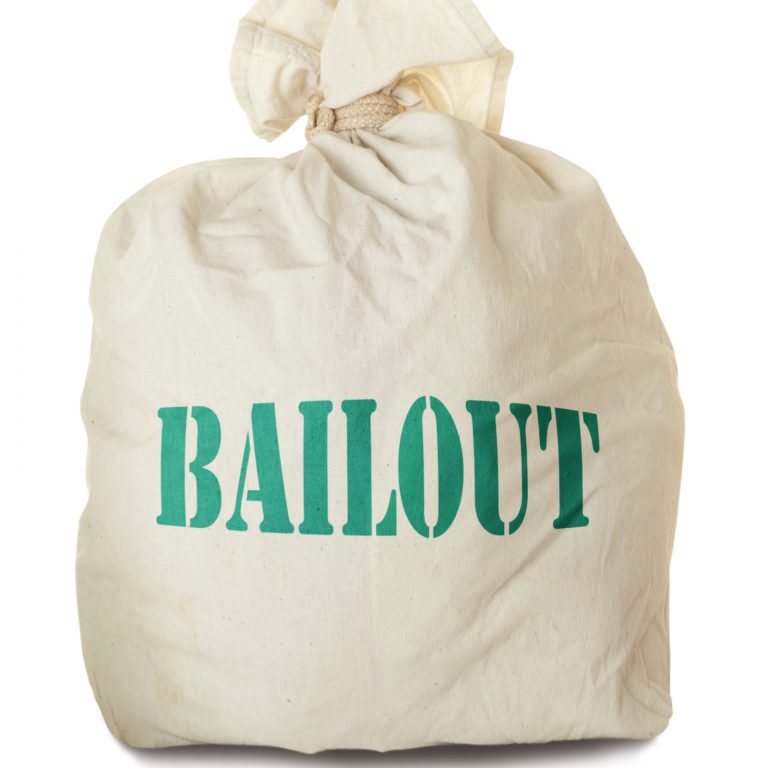
Bitcoin was created to bring back people’s control over their own hard-earned money. Perhaps no greater example exists of how we don’t currently have real influence over how our capital is being spent than banks getting bailouts from the government at taxpayer expense.
Also Read: Coinsource Installs 20 Bitcoin ATM Machines Around Washington DC
A History of Fleecing the Taxpayers
 Governments all over the world have been bailing out companies for decades, if not longer. And it seems that whenever a financial crisis arises, failed businesses call on the authorities to save them. While directly giving funds or just sweetheart loans to physical companies such as car manufacturers, airlines and the like is harmful to the economy, it is usually easier for the public to accept in order to save working class jobs. Bank bailouts on the other hand are almost universally hated.
Governments all over the world have been bailing out companies for decades, if not longer. And it seems that whenever a financial crisis arises, failed businesses call on the authorities to save them. While directly giving funds or just sweetheart loans to physical companies such as car manufacturers, airlines and the like is harmful to the economy, it is usually easier for the public to accept in order to save working class jobs. Bank bailouts on the other hand are almost universally hated.
Economists see bailing out banks as creating bad incentives for executives to keep taking more critical risks, knowing that major losses will be covered by the taxpayers while outsized gains will be kept by them. And the general public objects to ‘fat cat’ bankers getting enormous sums of money due to their crony connections to politicians. This is why governments and central bankers must always declare the situation a national emergency and warn that a cleanup of the banking system might cause a complete economic collapse.
The most recent example of this process, the backlash and the futility of it, is the US’ 2008 bank bailouts. After the 2007 subprime mortgage crisis, major American financial institutions became insolvent the following year and the Bush administration came to their rescue. The Troubled Asset Relief Program (TARP), which propped up the too-big-to-fail banks with hundreds of billions of the taxpayers’ dollars, was



